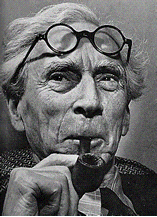Bertrand Russell
Everything gets "curiouser and curiouser" (Lewis Carroll, Alice in Wonderland). Why, as we grow up, do we want things to be explained and why do we want to be 'right' and label everything; good/bad, right/wrong, pretty/ugly, happy/sad, scary/safe...??
I think we really are all 'mad' and this is a function of our creative, vulnerable, unique, inside sparks which get buried under the rubble of the 'things' we think we 'know'. The more we think we know the deeper we get stuck in a world of our own creation instead of a place of magic where every sunrise is different and trees can talk ... where its okay not to know the answers or what is going to happen tomorrow ... where we can cry and laugh in the same moment about the same thing and where funny little inspirations can jump out at random times and places and there are always multiple paths we can choose to take us places we haven't even dreamed of yet.
Warm wishes for a wonderful, imaginative, curious, loving Christmas time to all.
Jeanne
Bertrand Russell

Photo by Larry Burrows
Bertrand Russell
First published Thu Dec 7, 1995; substantive revision Thu Jun 29, 2017
Bertrand Arthur William Russell (1872–1970) was a British philosopher, logician, essayist and social critic best known for his work in mathematical logic and analytic philosophy. His most influential contributions include his championing of logicism (the view that mathematics is in some important sense reducible to logic), his refining of Gottlob Frege’s predicate calculus (which still forms the basis of most contemporary systems of logic), his defense of neutral monism (the view that the world consists of just one type of substance which is neither exclusively mental nor exclusively physical), and his theories of definite descriptions, logical atomism and logical types.
Together with G.E. Moore, Russell is generally recognized as one of the main founders of modern analytic philosophy. His famous paradox, theory of types, and work with A.N. Whitehead on Principia Mathematica reinvigorated the study of logic throughout the twentieth century (Schilpp 1944, xiii; Wilczek 2010, 74).
Over the course of a long career, Russell also made significant contributions to a broad range of other subjects, including ethics, politics, educational theory, the history of ideas and religious studies, cheerfully ignoring Hooke’s admonition to the Royal Society against “meddling with Divinity, Metaphysics, Moralls, Politicks, Grammar, Rhetorick, or Logick” (Kreisel 1973, 24). In addition, generations of general readers have benefited from his many popular writings on a wide variety of topics in both the humanities and the natural sciences. Like Voltaire, to whom he has been compared (Times of London 1970, 12)), he wrote with style and wit and had enormous influence.
After a life marked by controversy—including dismissals from both Trinity College, Cambridge, and City College, New York—Russell was awarded the Order of Merit in 1949 and the Nobel Prize for Literature in 1950. Noted also for his many spirited anti-nuclear protests and for his campaign against western involvement in the Vietnam War, Russell remained a prominent public figure until his death at the age of 97.
https://plato.stanford.edu/entries/russell/
No comments:
Post a Comment